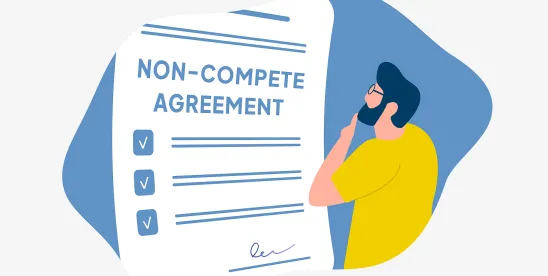On June 20, 2025, Texas Governor Greg Abbott signed into law Senate Bill 1318 (“SB 1318”), which amends Texas Business & Commerce Code Section 15.50(b) to impose new limitations on physician non-competes. SB 1318 also adds a new Section 15.501, which restricts non-competes for dentists, nurses, and physician assistants. SB 1318 goes into effect September 1, 2025, and applies to agreements entered into or renewed on and after that day. Here are the five key things to know about the new law:
1. The “Reasonable Price” Buyout Standard Has Changed
Previously, Texas law required that physician non-compete agreements include a buyout provision at a “reasonable price,” often leading to disputes and uncertainty over what constituted “reasonable.” SB 1318 replaces this standard with a clear cap. Now, the buyout amount cannot exceed the physician’s total annual salary and wages at the time of termination. This change eliminates the prior option to arbitrate the buyout price.
2. New Time and Geographic Limitations
SB 1318 imposes limits on the duration and geographic scope of non-compete agreements for physicians. Non-competes may not exceed a period of one year following the end of the employment or contract, and the restricted area cannot exceed a five-mile radius from the location where the practitioner primarily practiced. These limitations apply to non-competes related to employment agreements, independent contractor agreements, or ownership documents. The limitations do not apply to physician ownership interests in a hospital or ambulatory surgery center (i.e., Section 15.50(c) remains unchanged). Additionally, SB 1318 requires that all terms and conditions of the non-compete be clearly and conspicuously stated in writing.
3. Non-Competes Are Void If Physician Terminated Without Good Cause
Physician non-compete agreements are now void and unenforceable if the physician is involuntarily discharged without “good cause.” SB 1318 defines “good cause” as a reasonable basis for discharge directly related to the physician’s conduct, job performance, or employment record. This means that if a physician is let go for reasons unrelated to their performance or conduct (i.e., without good cause), their non-compete will not be enforceable.
4. Non-Compete Restrictions Do Not Apply to Administrative Services.
SB 1318 does not create any restrictions for non-competes related to managing or directing medical services in an administrative capacity for medical practices or other healthcare providers. So, SB 1318 should not affect a majority of medical director agreements, which are purely for administrative services.
5. Expansion of Non-Compete Restrictions to Dentists, Nurses, and Physician Assistants
For the first time, SB 1318 extends non-compete restrictions to other healthcare practitioners, including dentists, professional and vocational nurses, and physician assistants. It is important to note that professional and vocational nurses include RNs, LPNs, CRNAs, nurse midwives, clinical nurse specialists, APRNs and others licensed under Chapter 301 of the Texas Occupations Code. The same requirements that apply to physicians—buyout cap, one-year duration, five-mile geographic limit, and clear written terms—now apply to these practitioners as well. Unlike physician non-competes, SB 1318 does not state that a non-compete for dentists, nurses, or physician assistants is void if the practitioner is terminated without good cause. Similarly, SB1318 does not require that these practitioners be permitted to continue treating former patients experiencing acute illness, receive a list of patients they treated during the year preceding the end of employment, or obtain access to medical records for patients if authorized.
SB 1318 represents a substantial change to Texas’s approach to non-compete agreements in the healthcare sector. By capping buyout amounts, limiting the scope and duration of restrictions, voiding non-competes for terminations without good cause, and expanding protections to additional practitioners, the law creates a more defined framework for restrictive covenants in the healthcare sector. In the meantime, both employers and practitioners should review their contracts and prepare for compliance with the new requirements.








 />i
/>i
